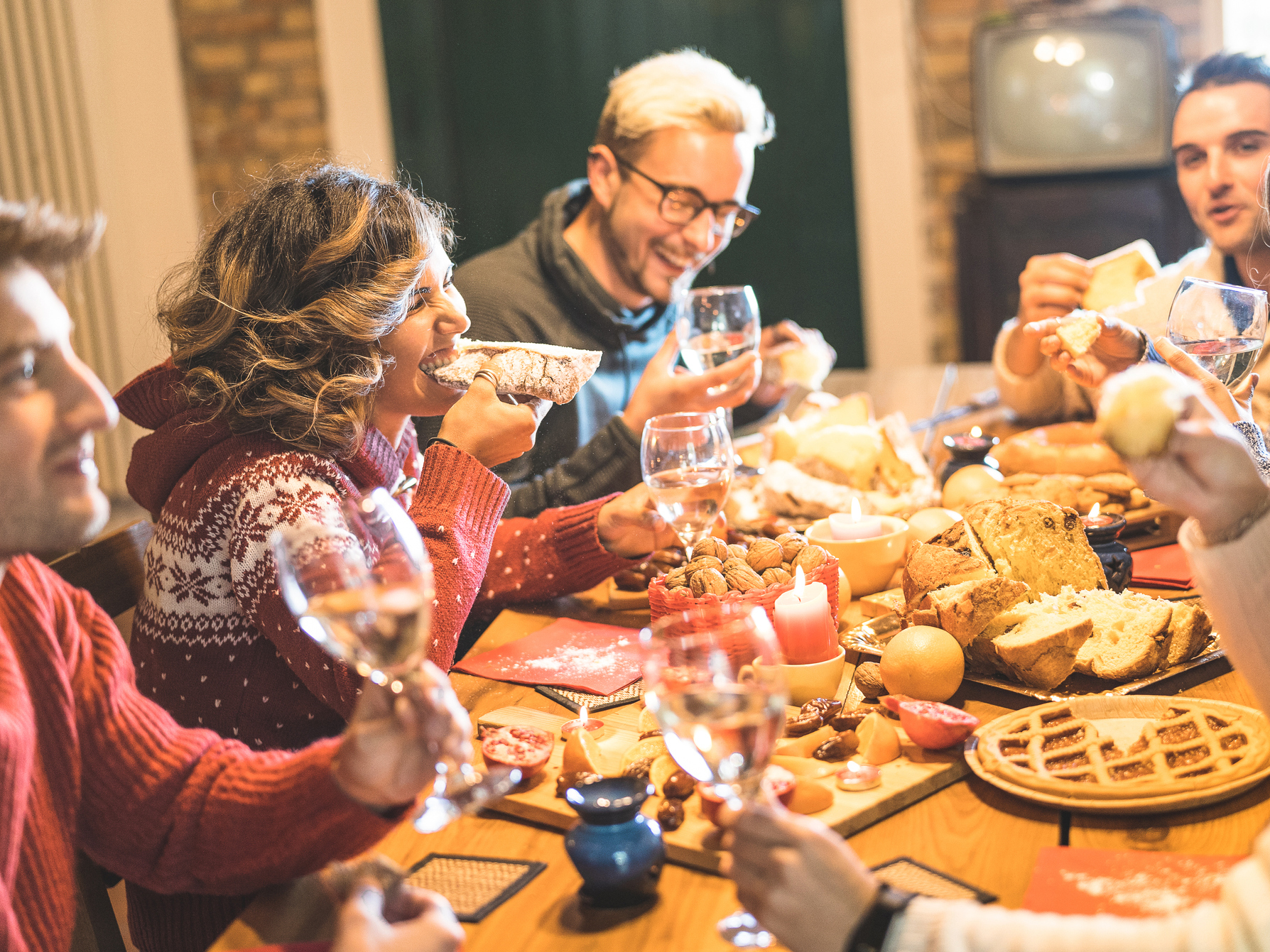Get Easy Health Digest™ in your inbox and don’t miss a thing when you subscribe today. Plus, get the free bonus report, Mother Nature’s Tips, Tricks and Remedies for Cholesterol, Blood Pressure & Blood Sugar as my way of saying welcome to the community!
The one thing you haven’t given up that sabotages healthier eating habits

It’s important to eat healthy to be healthy, right?
That means eating more fruits and veggies, less sugar, and leaning towards whole foods in general while steering clear of overly processed foods — especially if you want to manage your weight and avoid conditions like heart disease. But that can be super difficult!
You have to cut out some of your favorite sweets and comfort foods… Be mindful of your calorie intake… give up late-night snacking…
And stop eating with friends and family.
Wait, what? Stop eating with friends and family? That sounds crazy!
Well, of course, you don’t have to give that up completely, but research shows that we eat up to 48 percent more when dining with friends and family than we do when eating alone.
If you’re watching your intake, for whatever reason, that could throw a big kink in your goals… especially with the holidays around the corner and family gatherings, social events and big meals to look forward to.
So, let’s look at why this happens so you can be prepared…
Why we eat more with friends and family
When human society was made up of clans of hunters and gatherers, food scarcity was a real problem.
The winters could be long, without enough food stores to last. Weather patterns could alter the movements of animal herds or reduce the amount of edible plants that grew in the wild. These natural forces could make it difficult for everyone in a group to get enough food.
That’s why, when a group of people had food, they shared it among themselves.
This helped ensure their survival because everyone got the nutrition they needed. They had a better chance of staying strong and multiplying.
Related: 4 Surprising triggers that trick you into overeating
Today we have an abundance of food, but we still carry this ancient survival mechanism inside us. This instinct causes us to eat more when we’re with family and friends, a phenomenon known as “social facilitation.”
A few theories about why we eat more with friends and family than we do when we’re alone are:
- Eating with others is more enjoyable than eating alone, and to prolong the enjoyment we eat more.
- Social norms may allow for overeating when with company (it’s almost a celebratory habit) but stigmatize eating a lot when you’re alone.
- Providing food for a group often results in praise and recognition from friends, family, and colleagues. This strengthens social bonds and makes the provider feel “rewarded.”
It seems that the ancient part of our brains sees eating with friends and family as a form of social bonding, whereas eating alone is just solving the problem of hunger.
And, research shows we’re affected by another phenomenon called “evolutionary mismatch.” The short explanation of evolutionary mismatch is that eating in a group of unfamiliar people triggers our ancient brains to eat LESS than if we were eating alone, or with friends and family.
It’s really odd, isn’t it? We live in nicer dwellings, but as far as our brains are concerned, we’re not very far from the cave.
How to avoid overeating with family and friends
Be aware that eating in a familiar group might cause you to unconsciously eat more. Stay present and pay attention to your body’s satiety cues, like you would when eating alone.
Eat slowly and deliberately so you can recognize when you’re full. There’s usually an abundance of food at these gatherings, so don’t feel like you have to get it all while the getting’s good.
If you know you’re going to eat more at a gathering, reduce the size of your meals earlier in the day. You can make up those calories at the dinner and keep your overall intake in a healthy range.
Like most things, when it comes to diet, simple awareness can go a long way in helping you manage what you eat, and how much.
And remember, you’re hardwired to enjoy a shared meal! Don’t beat yourself up if you eat more than usual. Do your best to balance things out so that overall, you’re eating well for your body.
Editor’s note: Getting fit and healthy is not as complicated as you might think. In Dr. Cutler’s free report, you can read about 10 easy steps to a natural total health makeover based on just 7 basic fundamentals that cover ALL the bases… My favorite is #7: Indulge occasionally! For the rest, click here!
Sources:













